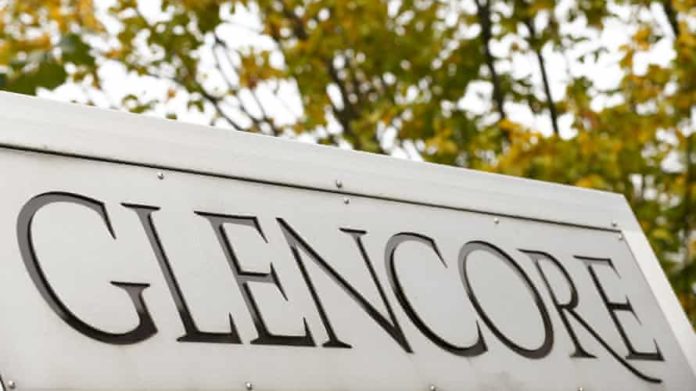
GLENCORE said its strategy of gradually depleting its coal resources was “overwhelmingly supported” by the majority of its shareholders.
This followed discussions with shareholders after the group’s Climate Resolution was opposed by more than a fifth of shareholders voting at its annual general meeting in April. Glencore was required to consult with shareholders on its emission plans as a result.
Reporting back today, the Swiss headquartered group commented that “a limited number” of shareholders had asked it to accelerate its emissions reduction plan which is to cut emissions 50% by 2030. Others had raised the prospect of Glencore increasing coal output.
An update on its climate strategy would be provided when Glencore reports its full year results for the financial year ended December 31 in February.
In terms of Glencore’s carbon emissions strategy, it said in 2020 it would cap coal production at 150 million tons a year and stop producing the fuel by 2050 when its coal reserves would be depleted.
Coal prices surged to more than $400/t earlier this year and traded this week at around $386/t, a year-on-year increase of about 128%. This following the invasion of Ukraine by Russia which has resulted in reduced gas supplies to Europe and has sent utilities to coal. Germany and Belgium are holding back on plans to decommission nuclear plants.
Geopolitical instability has also had a favourable impact on Glencore’s marketing division which has benefited from the volatile trading conditions. Wild swings in commodities ranging from oil, gas, corn and copper have boosted the performance of Glencore’s sprawling trading division, according to a report by Bloomberg News.
Citing Glencore’s third quarter production report today, Bloomberg News said that second half trading profits would probably exceed $1.6bn representing the top end of its guidance range on a half year basis.
However, second half trading earnings would be lower than the first half which hit a record $3.7bn. Production targets are also proving elusive, said Bloomberg News.
Glencore cut production guidance for coal by 10% as a result of floods in Australia, a development that would put pressure on supply. Full-year output is now seen at 110 million tons, and it also lowered zinc and nickel output targets.
Glencore received bad news from Australian authorities, according to a Reuters report which said plans to expand a coal mine had been rejected.
The New South Wales Independent Planning Commission turned down an application to expand the Glendell coal mine due to the significant impact it would have, especially on the heritage values in the region, said Reuters.
Allowing Glencore to continue current open cut mining to the north of its existing operations, was “not in the public interest, despite its likely benefits,” the three member commission concluded after a site inspection and public hearing, said Reuters.
The commission found that Glencore’s expansion of Glendell could harm both the complex and Aboriginal cultural heritage values.
“If the significant and irreversible impacts to historic heritage could have been avoided, other key issues such as the greenhouse gas emissions, mine rehabilitation, etc could have been managed,” the commission said in its report.
Glencore said it was “extremely disappointed” with the decision.











